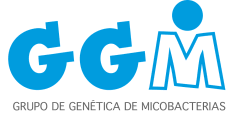
José Antonio Aínsa Claver
Professor
I got my doctorate in GGM, supervised by Prof. Carlos Martín and Prof. Rafael Gómez-Lus, on aminoglycoside resistance in mycobacteria. Next, I worked as a postdoc for 3-years at the John Innes Centre (Prof. Keith Chater group, Norwich, UK), on transcriptional regulation of sporulation in Streptomyces coelicolor. In 2000, I returned to GGM thanks to a Ramón y Cajal individual fellowship. Currently, I am Associate Professor in Microbiology at the University of Zaragoza. I am a member of Institute for Biocomputation and Physics of Complex Systems (BIFI), Institute for Health Research Aragón (IIS-Aragón) and Spanish Network for Research on Respiratory Diseases (CIBERES).
I keep on being fascinated by mycobacteria, so that I investigate their mechanisms of drug resistance and persistence, and I dedicate efforts to find new products with antimicrobial activity against Mycobacterium tuberculosis. I am concerned about antimicrobial resistance (AMR), not just in mycobacteria. Finally, I am also interested in Wine Microbiology, and really fond of participating in MicroMundo (Spanish branch of Small World Initiative and Tiny Earth).
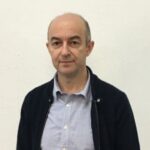
Santi Ramón García
ARAID researcher
PhD in Molecular Microbiology (2006) from the University of Zaragoza (UNIZAR) under the supervision of Dr.. José A. Aínsa Claver and Dr. Carlos Martín Montañes. Here, I studied the molecular mechanisms of resistance to antibiotics in mycobacteria, with a special focus on the role of efflux pumps.
Postdoc at the University of British Columbia (UBC) under the supervision of Prof. Charles J. Thompson where I studied the transcriptional factor WhiB7 and its role in antibiotic resistance. Later on, Research Associate at UBC to develop a platform to identify new therapies against tuberculosis based on the concepts of drug repositioning and synergism.
These studies brought the attention of the pharmaceutical company GlaxoSmithKline (GSK) and, late in 2014, I joined GSK’s DDW (Diseases of the Developing World) campus in Tres Cantos, Spain, to develop a program to optimize beta-lactams for the treatment of tuberculosis. I left GSK DDW in 2020.
Since 2017, ARAID Researcher at UNIZAR where I co-lead the D2AMR team within the GGM group.
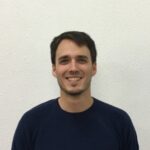
Ainhoa Lucía Quintana
Senior scientist
I obtained my degree in Biochemistry at University of Zaragoza (2005), and got my PhD in the GGM group at the same University (2010). I did several stays pre and post-doctoral in prestigious laboratories (EPFL in Lausanne, QMUL in London and UMA in Málaga) and my scientific career has been centered in the study of several pathogenic bacteria at different levels: molecular basis of resistance, MoA of different drugs or host-pathogen interactions.
I have been working with different methodologies as genetic manipulation of pathogenic bacteria in BSL3 labs, epigenetic studies or plant biotechnology. Thank to this variability I have a wide knowledge of different techniques, and a high capacity of learning and adaptation. Since 2014 I am back in GGM working in the development of new drugs and therapies against different bacteria. I have implemented the project “MicroMundo” at University of Zaragoza, which I currently coordinate. This is a Service-Learning and Citizen Science project, which involves 2 educational levels (undergrad and graduate students) and is being carried out by more than 30 Universities in Spain.

José Manuel Ezquerra
PhD Student
I studied Biotechnology at the University of Zaragoza. Then I got a Master’s Degree in Quantitative Biotechnology by the Institute for Biocomputation and Physics of Complex Systems (BIFI) of the University of Zaragoza. Currently, I’m doing my PhD, focused on the elucidation of the mode of action of new antimicrobial compounds against Mycobacterium tuberculosis and other pathogenic bacteria.

Lara Muñoz
PhD Student
I studied Pharmacy at the University of Salamanca. Then I specialized in Clinical Microbiology and Parasitology at the Clinical University Hospital Lozano Blesa in Zaragoza, where I worked for 4 years with clinical samples. During this period, I have carried out two stays to learn in vitro techniques to test compounds against mycobacterial biofilms, among others confocal laser scanning microscopy. These stays were at the Ramón y Cajal Institute for Health Research (IRYCIS), and at Jiménez Díaz Foundation University Hospital. Currently, I am working on my PhD in Mycobacterial Genetics Group, based on the search for more effective therapies for the treatment of non-tuberculous mycobacterial infections.
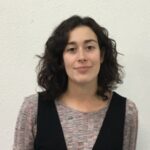
Marta Gómara
PhD Student
I studied Pharmacy and Nutrition at the University of Navarra. I continued my career developing a specialized health training in Clinical Microbiology at the Miguel Servet University Hospital, and also a Master’s Degree in Medical Research in Zaragoza.
Currently, I am developing my PhD in the D2AMR Team of the Mycobacterial Genetics Group in Zaragoza. I work on the search and development of new therapies based on synergy and drug repurposing to treat multidrug-resistant bacteria of clinical relevance such as Klebsiella pneumoniae and non-tuberculous mycobacteria. I am using microbiological and pharmacological in vitro models to predict the clinical efficacy of new antimicrobial combinations.

Ana Cristina Millán Placer
PhD Student
I graduated in Biotechnology at the University of Zaragoza in 2017. Then, I obtained a MSc in Molecular and Cellular Biology from the University of Zaragoza in 2018. Currently, I am pursuing my PhD with an FPU fellowship (funded by the Spanish Government), focused on elucidating the molecular mode of action of new drugs with antimicrobial activity and studying the mechanisms of drug tolerance in Mycobacterium tuberculosis.

Dra. Jordana Galizia
Postdoctoral researcher
I’m a molecular biologist. I obtained my degree in Biological Sciences in 2014, at the University of Buenos Aires in Argentina. After that, in 2015 I was awarded with a doctoral fellowship from CONICET (Consejo Nacional de Investigaciones Científicas y Técnicas, Argentina) that allowed me to do my PhD under the supervision of Dr. Marcelo Martí and Dr. Mariana Piuri. During my years as a graduate student, I studied the effect of nitrosative stress on mycobacteria, focusing on Reactive Nitrogen and Oxygen Species (RNOS) releasing compounds and their possible role as new antimycobacterial molecules. In 2020 I got my PhD degree and that same year I moved to Spain where I joined Dr. Santiago Ramón-García’s group as a postdoctoral researcher. Currently I’m working towards the design of new therapeutic regimes for tuberculosis treatment.
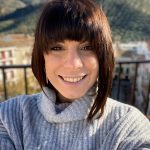
Emma Sáez López
Postdoctoral researcher
After graduating in Biology and Biochemistry in 2009, I worked in cooperation for three months in Argentina and as a European volunteer for one year in Guinea-Bissau. In 2017, I got a PhD in Microbiology related to obstetric and neonatal infections caused by Escherichia coli in the ISGlobal-Barcelona Institute for Global Health, during which I participated in internships in Morocco and Mozambique. After obtaining the PhD, I completed the ECDC European Public Health Microbiology (EUPHEM) fellowship (2017-2019) at the National Health Institute Doutor Ricardo Jorge in Lisbon, Portugal. Afterwards, I worked in the field for one year with Doctors without borders (MSF), as epidemiologist in Haiti and microbiologist/health promotion manager in Nigeria. In January 2021, I joined the Mycobacterial Genetics group at the University of Zaragoza as a postdoc. I collaborate in a project whose objective is to compare different antibiotic combinations for shortening the Buruli ulcer disease therapy.
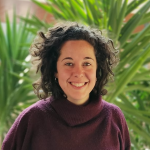
Ana Picó Marco
Laboratory technician
Since 2005 I have been working as a laboratory technician in the Mycobacteria Genetics Group. A large part of this time has been devoted to biological molecular techniques. I began with classifying clinical strains of M. tuberculosis, DNA manipulation, RNA and proteins.
Later, I completed the Madrid Region course in Animal Experimentation (Functions C & B), collaborating in varied experiments with mice.
I am certified in Biosecurity, compliant with the National Biotechnology Centre’s training requirements (UNE-CWE 16335:2014).
I have experience in purchase management and negotiating budgets with several suppliers for the buying of material and equipment necessary for the laboratory.
Currently I am starting work on the research and development (R&D) of new antibiotics against Mycobacterium tuberculosis.

Diana Angélica Aguilar Ayala
Postdoctoral researcher
I joined the D2AMR group in December 2020 under the scope of ERA4TB goals to implement the Hollow Fiber System technology for new TB-drugs and regiments included in this consortium’s pipeline. I did a joint Doctorate in Science in Biomedicine and Molecular Biotechnology at Instituto Politécnico Nacional (ENCB-IPN, Mexico) and Ghent University (Belgium). Since 2011, I’ve been working on mycobacteria, mainly latent tuberculosis, host lipids in the metabolism of M. tuberculosis, and drug susceptibility. I’ve also collaborated in projects involving the female urobiome, congenital tuberculosis, and COVID-19 at INPER-Mexico. My research has been funded by Consejo Nacional de Ciencia y Tecnología (CONACYT – Mexico), the European Society of Clinical Microbiology and Infectious Diseases (ESCMID) and UGent (Bijzonder Onderzoeksfonds – BOF).

Rebeca Bailo
Postdoctoral researcher
I am a biochemist with experience in microbiology, molecular and cell biology and drug discovery. After completing my PhD in 2015 at the University of Zaragoza on M. tuberculosis cell wall physiology, I moved to the University of Birmingham to go deeper into this topic. During this time, I worked with Dr Apoorva Bhatt and collaborate with the Institute for Systems Biology on deciphering how mycobacteria remodel their cell wall during host infection. As I became increasingly interested in the effect of drug resistance in TB treatment outcome, I moved back to the University of Zaragoza to work with Dr Santiago Ramón-García. Since July 2020, I am designing optimal regimes for tuberculosis therapy using one-step high content dynamic in vitro kill kinetic assay linked to hollow fiber studies, splitting my time between GSK and the University of Zaragoza.
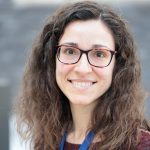
Luis Vázquez
Postdoctoral researcher
I completed my undergraduate studies in Biochemical Engineering (ENCB-IPN), I have a Master’s degree in Pharmacology (Cinvestav-IPN) and I did my doctorate with a specialty in Immunology, at the ENCB-IPN (Mexico). As part of my professional activity, I worked as a food analyst in the Microbiology area (2011); I made a research stay at Cinvestav-IPN (2012); from 2021 – 2022 I was working in the UDIMEB of the ENCB-IPN; and from April 2015 to March 2023 as a professor at the ENCB, in undergraduate and postgraduate courses.
In May 2023, I joined the GGM as a post-doctoral researcher of the project ERA4TB, to identify new treatments against Mycobacterium tuberculosis, working with in vitro models (Hollow Fiber System and THP-1 and PBMC cell cultures).
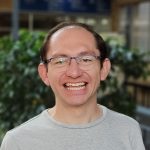
Marie Sylvianne Rabodoarivelo
Postdoctoral researcher
Marie Sylvianne Rabodoarivelo is a microbiologist with nine years of experience in mycobacteria field research. She completed studies in Madagascar (University of Antananarivo) for her doctorate in Microbiology and Molecular Biology. She is a former graduate student of the Institut Pasteur of Madagascar (IPM, Mycobacteriology Unit) and Ghent University, Belgium (UGent, Laboratory of Microbiology) working in tuberculosis research program. After her trainings, she was recruited at the Pasteur Institute of Madagascar as researcher where she was involved in an innovative tuberculosis research projects and was in charge of the implementation of the sequencing-based TB diagnostics using the portative NGS sequencers to search for drug resistance in collaboration with the University of Oxford and European Bioinformatic Institute (EMBL-EBI). Recently, she joined the Grupo de Genética de Micobacterias, Departamento de Microbiología, Universidad de Zaragoza as a postdoctoral researcher and she is involved in ERA4TB (European Accelerator of Tuberculosis Regime) project.

Begoña Gracia
25 years as a Laboratory Technician, 17 of them in research with Mycobacterium tuberculosis.
Biosafety training certified by the National Biotechnology Center.
Development and discovery of antibiotics and resistance mechanisms, working for pharmaceutical companies and participating in numerous research projects.
Training and advice for the staff who are the group, in biological safety and in the different techniques we use.
Collaboration and participation in articles published by the group.
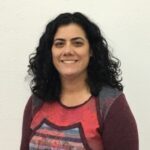
Fernando Sanz García
Fernando Sanz graduated from Biotechology in Universidad de Zaragoza (2015), in which he received the Premio Extraordinario de Grado. He also studied a Master in Microbiology (Universidad Autónoma de Madrid, 2016) and obtained a PhD in Molecular Biosciences (Universidad Autónoma de Madrid, 2020), which was awarded with the Premio Extraordinario de Doctorado, in the laboratory of José Luis Martínez (Centro Nacional de Biotecnología, Madrid). His research in José Luis Martínez’s lab focused on antibiotic resistant bacteria, particularly on Pseudomonas aeruginosa’s intrinsic and acquired antibiotic resistance mechanisms, with special emphasis on evolution-based therapeutic approaches. He has published 16 articles on the matter in diverse journals of renowned scientific prestige, such as Science Advances (Impact factor = 14.13), Molecular Biology and Evolution (16.24), Microbiology Spectrum (7.17) or Current Opinion in Microbiology (6.94); all of the above as first or second author. In addition, he has presented his work in various national and international conferences, like the 16th International Conference on Pseudomonas (Liverpool, 2017), the 8th Congress of European Microbiologists -FEMS- (Glasgow, 2018) or EMBO|EMBL Symposium: New Approaches and Concepts in Microbiology (online, 2021). Nowadays he works as a postdoctoral researcher in Santiago Ramón’s lab, studying new treatment regimens against Mycobacterium tuberculosis using the hollow-fiber system infection model.
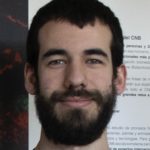
Ana Benítez Lázaro
18 years working as a Laboratory Technician, since June 2022 in Mycobacterium tuberculosis.
Mainly engaged in Hollow Fiber pharmacokinetic and pharmacodynamic studies, trained in Cell Cultures, Molecular Biology and Animal experimentation.

